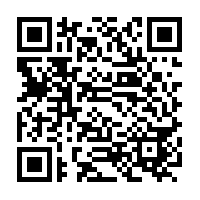HUBUNGAN KONSEP DIRI DENGAN HASIL BELAJAR MATA PELAJARAN GAMBAR TEKNIK OTOMOTIF PESERTA DIDIK KELAS X KOMPETENSI KEAHLIAN TEKNIK KENDARAAN RINGAN OTOMOTIF DI SMK NEGERI 2 LUBUK BASUNG
Abstract
ABSTRAK
Penelitian ini membahas tentang hubungan konsep diri dengan hasil belajar, yang dilatar belakangi pada masalah konsep diri pesera didik terhadap dirinya sebagai seorang peserta didik yang menyebabkan rendahnya hasil belajar peserta didik. Tujuan penelitian ini adalah untuk mengungkapkan hubungan antara konsep diri dengan hasil belajar mata pelajaran gambar teknik otomotif peserta didik kelas X Kompetensi Keahlian Teknik Kendaraan Ringan Otomotif di SMK Negeri 2 Lubuk Basung. Jenis penelitian ini adalah penelitian deskriptif dan korelasional. Populasi dalam penelitian ini adalah peserta didik kelas X Kompetensi Keahlian Teknik Kendaraan Ringan Otomotif pada tahun pelajaran 2017/2018 sebanyak 94 orang. Teknik pengambilan sampel dalam penelitian ini adalah stratified random sampling dengan menggunakan rumus Taro Yamane untuk menentukan jumlah sampel, jumah sampel dalam penelitian ini adalah 50 orang peserta didik. Data konsep diri peserta didik diperoleh melalui angket yang telah dinyatakan valid dan reliabelnya. Data hasil belajar peserta didik diambil dari hasil ujian tengah semester. Jenis analisis data yang digunakan adalah rumus korelasi Product Moment. Hasil dari analisis data diperoleh bahwa konsep diri peserta didik di SMK Negeri 2 Lubuk Basung, perlu ditingkatkan lagi untuk mencapai tujuan pembelajaran yang lebih baik di kelas, angka koefisien korelasi yang didapat ( ) = 0,508 lebih besar dari ( ) = 0,279 dan angka keberartian koefisiensi korelasi dari kedua variabel diperoleh ( ) = 4,7383 lebih besar dari ( ) = 2,0106 dengan taraf signifikan 5%. Berdasarkan hasil penelitian tersebut, dapat disimpulkan bahwa konsep diri memiliki hubungan yang positif dan signifikan dengan hasil belajar.
Kata Kunci
Konsep Diri, Hasil Belajar
ABSTRACT
This study discusses the relationship between self-concept and learning outcomes, which is based on self-concept of students to themselves as a student that causes low learning outcomes of learners. The purpose of this study is to describe the relationship between self-concept with the learning outcomes of drawings automotive engineering that is done by students class X Competency of Automotive Light Vehicle Engineering Expertise at SMK Negeri 2 Lubuk Basung. The type of this research is descriptive and correlational method. The population in this study is 94 students of class X Competence of Automotive Vehicle Engineering Expertise in 2017/2018. The technique of collecting Sample in this research is stratified random sampling using Taro Yamane formula to determine the number of samples, the sample in this study is 50 students. Self-concept data of learners obtained through questionnaire that has been declared valid and reliable. Data of learning outcomes are taken from the result of middle test. The type of data analysis used is Product Moment correlation formula. The result of the data analysis is the self-concept of students in SMK Negeri 2 Lubuk Basung, need to be improved again to achieve better learning objectives in the class, the correlation coefficient obtained (r_hitung) = 0.508 greater than (r_tabel) = 0.279 and number significance correlation coefficient of both variables obtained (t_hitung) = 4.7383 greater than (t_tabel) = 2.0106 with 5% significant level. Based on the results of this study, it can be concluded that the concept of self has a positive and significant relationship with learning outcomes.
Keywords
Self Concept, Learning OutcomesFull Text:
PDFReferences
A. Muri Yusuf. 2007. Metodologi Penelitian. Padang: UNP Press.
Anas Sudijono. 2011. Pengantar Evaluasi Pendidikan. Jakarta: PT Raja Grafindo Persada.
Baron, Robert A dan Byrne, Donn. 2003. Psikologi Sosial Jilid 1. Jakarta: Erlangga.
Bloom, Benjamin S. 1956. Taxonomy Of Educational Objectives. New York: Longmans, Green and Co.
Djaali. 2011. Psikologi Pendidikan. Jakarta: Bumi Aksara.
Kunandar. 2011. Penelitian Tindakan Kelas. Jakarta: Rajawali Pers.
Nana Sudjana. 2011. Penilaian Hasil Proses Belajar Mengajar. Bandung: PT Remaja Rosdakarya.
Riduwan. 2014. Metode & Teknik Menyusun Proposal Penelitian. Bandung: Alfabeta.
Santrock, John W. 2007. Remaja Edisi 11 Jilid 1. Jakarta: Erlangga.
Suharsimi Arikunto. 2010. Manajemen Penelitian. Jakarta: Rineka Cipta.
Suharsimi Arikunto. 2010. Prosedur Penelitian. Jakarta: Rineka Cipta.
Wiji suwarno. 2009. Psikologi Perpustakaan. Jakarta: Sagung Seto.
UNP. 2014. Buku Panduan Penulisan Tugas Akhir/Skripsi Universitas Negeri Padang. Padang: UNP


